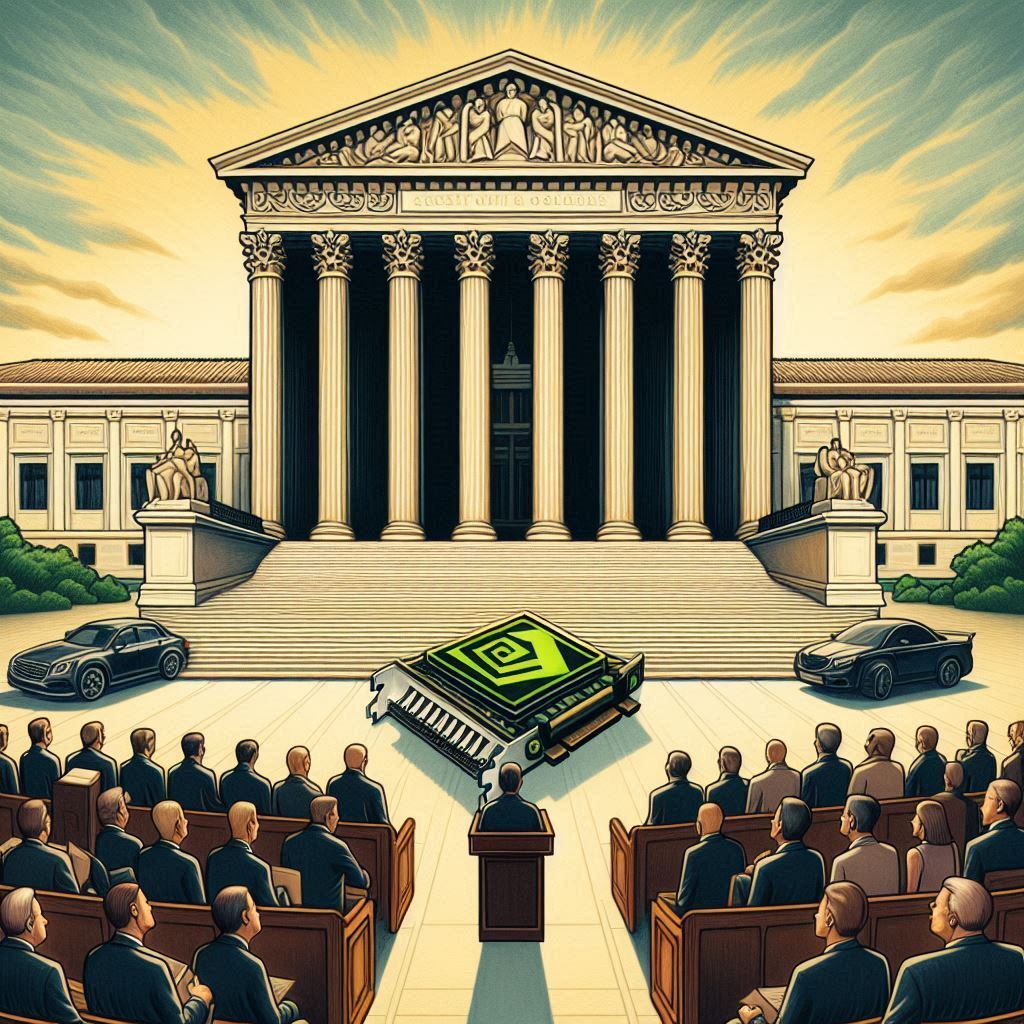The U.S. Supreme Court agreed to heаr a closely watched case brought by Nvidia sharеholders, potentially setting a precedent for how companies disclose their involvement in volatile markets like cryptocurrency, Bloomberg reported.
The lawsuit accuses the chipmaker giant of misleading investors about the extent to which its sales relied on cryptocurrency mining during the 2017-2018 boom.
The case hinges on Nvidia’s alleged failure to adequately inform investors about the risks associated with its dependence on crypto-related sales. The lawsuit, filed in 2018 by Swedish investment firm E. Ohman J: or Fonder AB, claims that Nvidia CEO Jensen Huang and CFO Colette Kress downplayed the significance of cryptocurrency sales, attributing strong revenue of $1 billion in sales in the crypto mining sector.
This alleged discrepancy became crucial when the cryptocurrency market crashed in late 2018. Nvidia’s stock price plummeted, leading shareholders to allege they were misled and suffered financial losses. The lawsuit seeks unspecified monetary damages.
Related: Kusama Reveals Details Of New AI Product in Recent Livestream
Nvidia has vehemently denied the accusations. The company argues the lawsuit lacks the necessary specificity to proceed and that public statements made by Huang accurately reflected the overall health of the market, which remained strong at the time.
The case gained further significance when a lower court ruling revived the lawsuit last year. A district court judge initially dismissed the case in 2021, but the Ninth Circuit Court of Appeals overturned that decision, allowing the case to proceed. This prompted Nvidia to appeal to the Supreme Court.
The high court’s decision to hear the case has legal experts watching closely. The court will primarily focus on the legal standard for pleading fraud in securities cases. Currently, shareholders must demonstrate “scienter,” meaning the company executives knowingly or recklessly made false or misleading statements.
Nvidia’s argument hinges on the notion that the lawsuit fails to meet this standard. They claim the shareholders haven’t presented sufficient evidence to prove Huang and Kress intentionally misled investors.
Related: Shiba Inu Secures Victory on CoinGecko with New Page Update
The ramifications of the court’s decision could extend far beyond Nvidia. A ruling in favor of the chipmaker could make it more difficult for shareholders to bring similar lawsuits against companies involved in volatile markets. Conversely, a decision siding with the shareholders could set a stricter standard for corporate disclosure, particularly regarding emerging technologies and potentially risky ventures.
The case also comes amid heightened scrutiny of cryptocurrency’s impact on traditional financial markets. Regulators are grappling with how to oversee this evolving sector, and the Supreme Court’s decision could provide clarity on how companies navigate this complex landscape while adhering to investor disclosure requirements.












